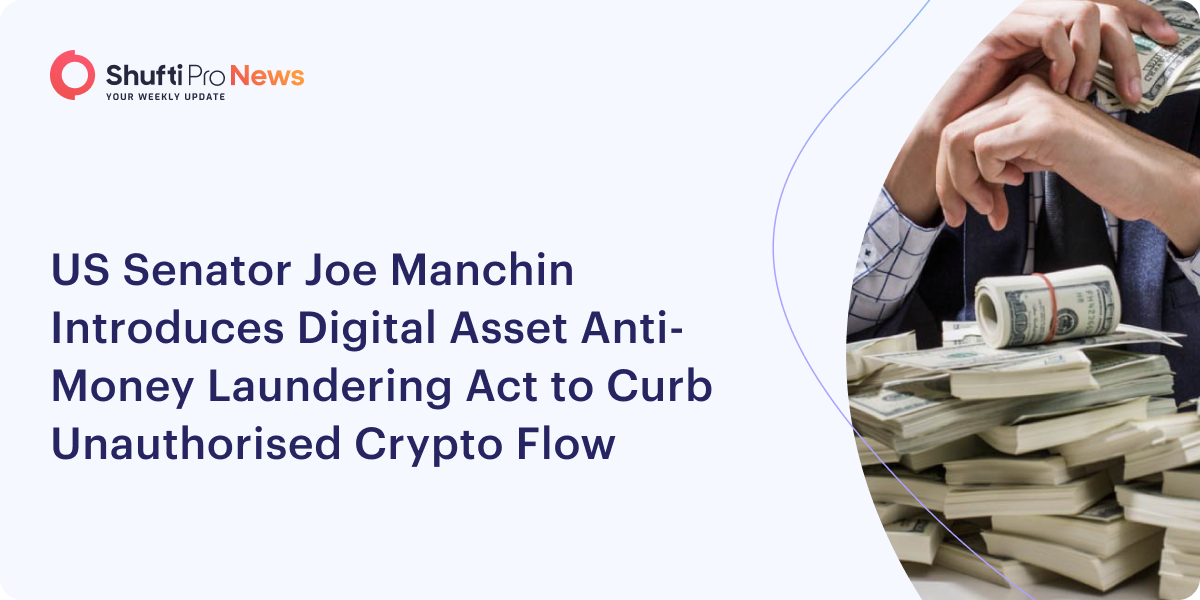US Senator Joe Manchin Introduces Digital Asset Anti-Money Laundering Act to Curb Unauthorised Crypto Flow

US Senator Joe Manchin, along with Senators Roger Marshall, Lindsy Graham, and Elizabeth Warren, introduced the Digital Asset Anti-Money Laundering Act to crack down on money laundering, drug trafficking and terrorist financing.
US Senators introduce the Digital Asset Anti-Money Laundering Act to mitigate the risk and address the loopholes that can have a detrimental impact on national security. With this legislation, the digital asset ecosystem will be secured and regulated according to AML and Counter-Financial Terrorism (CFT).
Senator Joe Manchin stated, “ Without tougher controls, decentralised digital assets can pose a significant risk to our national security by facilitating the financing of illicit activities, such as drug trafficking or money laundering from terrorists and rogue state actors. Our bipartisan legislation would curtail these security risks and require cryptocurrency platforms to abide by the same anti-money-laundering rules that banks must follow. I urge my colleagues on both sides to support this common-sense legislation to protect Americans by preventing bad actors from using cryptocurrencies to finance their criminal activities.”
The Digital Asset Anti-Money Laundering Act will strengthen the Bank Secrecy Act (BSA) responsibilities and enhance the Know-Your-Customer (KYC) requirements for miners, validators, and other entities involved in digital assets transactions. Additionally, it will extend the rules of BSA for the American citizens involved in a transaction of $10,000 or more in digital assets originating from offshore accounts. Additionally, this act addressed the concerns of the Financial Crimes Enforcement Network (FinCEN) regarding the gap in regulation compliance with respect to non-hosted digital wallets for digital assets. By directing FinCEN to ensure that banks and money service businesses comply with the proposed rule by December 2020, this regulation allows individuals to bypass the AML obligations checks. According to guidelines, financial institutes must keep records, verify customer identity, and report suspicious activity in digital assets transactions.
A number of organisations have approved these measures, including the Major County Sheriffs of America, AARP, the National Consumer Law Center, and the National Consumers League, along with Transparency International US, Global Financial Integrity, and the National District Attorneys Association.
Suggested Reads:
JOINT ATO OPERATION BUSTS $137M FRAUD RING
THE FATF GIVES THE PHILIPPINES 2-3 MONTHS TO ADDRESS REMAINING DEFICIENCIES
UAE ESTABLISHES ANTI-MONEY LAUNDERING BODIES TO ENHANCE GLOBAL MONITORING

 Explore Now
Explore Now













